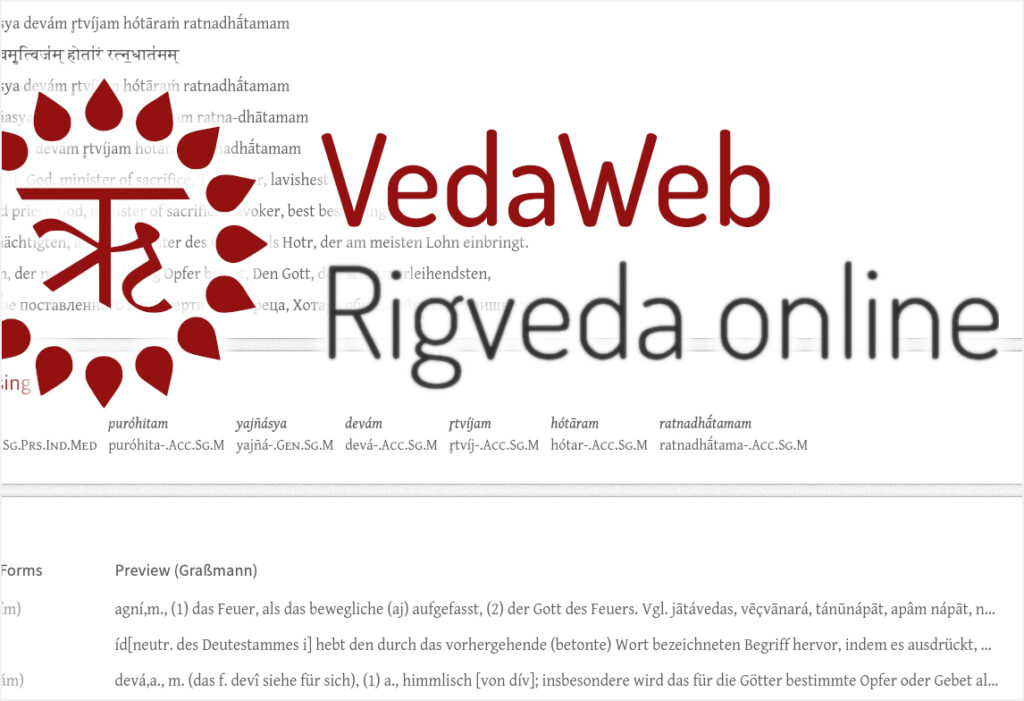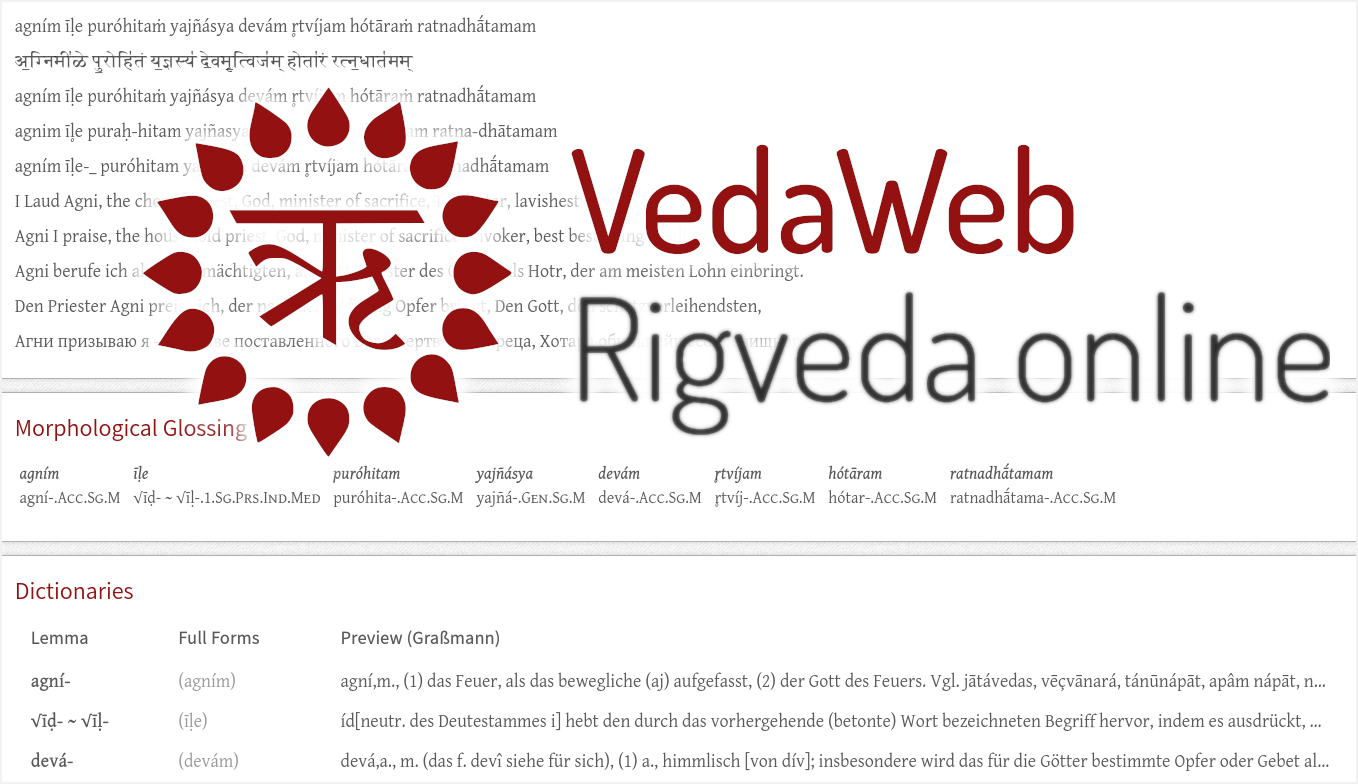
Link
Runtime
2017–2020; 2022–2025
project participants
Daniel Kölligan (Julius-Maximilians-Universität Würzburg), Claes Neuefeind (Cologne Center for eHumanities), Uta Reinöhl (Albert-Ludwigs-Universität Freiburg), Patrick Sahle (Bergische Universität Wuppertal). CCeH staff: Börge Kiss.
Funding
Funded by the DFG.
Description
The VedaWeb is a freely accessible web-based platform for linguistic research on ancient Indian texts. As part of the overarching platform C-SALT (Cologne South Asian Languages and Texts, https://c-salt.uni-koeln.de), the VedaWeb platform offers a link to the Cologne Digital Sanskrit Dictionaries (http://www.sanskrit-lexicon.uni-koeln.de) as well as a combined search function for lemmas, word forms, morphological and metrical information, the display of translations of the text and the possibility of exporting text sections together with morphological annotations according to criteria selected by the user. VedaWeb thus brings together a previously non-existent combination of user services in a research platform that enables research work on ancient Indian texts that was previously impossible or difficult to carry out.
The focus of the first project phase (2017–2020) was the development of the platform based on the Rigveda, which is considered the earliest and most important text of ancient Indian literature. In the course of the second project phase (2022–2025), the VedaWeb platform will be further developed from a centrally sourced platform to a collaborative working environment for Old Indo-Aryan texts, which will be shaped by the needs of the research community in the field of Old Indo-Aryan as a whole. For this purpose, not only additional texts are integrated into the platform, which can be enriched by the users of the platform with various types of annotations, available translations and links to dictionary entries, but also audio recordings of recitations of the Rigveda and other ancient Indian texts. Further goals of the second project phase are the encoding of the data according to Linked Open Data (LOD) principles and the creation of API endpoints through which applications and data are made available to the research community in accordance with the FAIR principles, the expansion of search functionalities, as well as the sustainable archiving of data and applications.
The source code of the current VedaWeb platform is accessible via a public GitHub repository (https://github.com/VedaWebPlatform/vedaweb).
Publications
For a list of all publications, see https://vedaweb.uni-koeln.de/#pubs.
Neuefeind, Claes / Kölligan, Daniel / Reinöhl, Uta / Sahle, Patrick (2022): “VedaWeb 2.0: Towards a Collaborative Workspace for Indo-Aryan Texts”. To appear in: Book of Abstracts of the Digital Humanities Conference 2022 (DH2022). Tokyo, Japan. July 25–29, 2022.
Mondaca, Francisco / Rau, Felix (2020). “Transforming the Cologne Digital Sanskrit Dictionaries into Ontolex-Lemon.” In: Proceedings of the 7th Workshop on Linked Data in Linguistics: Building Tools and Infrastructure at LREC 2020, ed. by Maxim Ionov [et al.]. Marseille, May 11–16, 2020. S. 11–14. DOI: 10.5281/zenodo.3935945.
Kiss, Börge / Kölligan, Daniel / Mondaca, Francisco / Neuefeind, Claes / Reinöhl, Uta / Sahle, Patrick (2019). “It Takes a Village: Co-Developing VedaWeb, a Digital Research Platform for Old Indo-Aryan Texts.” In: Proceedings of the Twin Talks Workshop at DHN 2019, ed. by Steven Krauwer and Darja Fišer. Copenhagen, March 5, 2019. pp. 35–44. [PDF]
Mondaca, Francisco / Schildkamp, Philip / Rau, Felix (2019). “Introducing Kosh, a Framework for Creating and Maintaining APIs for Lexical Data.” In: Electronic Lexicography in the 21st Century: Proceedings of the eLex 2019 Conference, ed. by Iztok Kosem [et al.]. Sintra, October 1-3, 2019. Brno: Lexical Computing CZ, s.r.o. pp. 907–921. [PDF]
